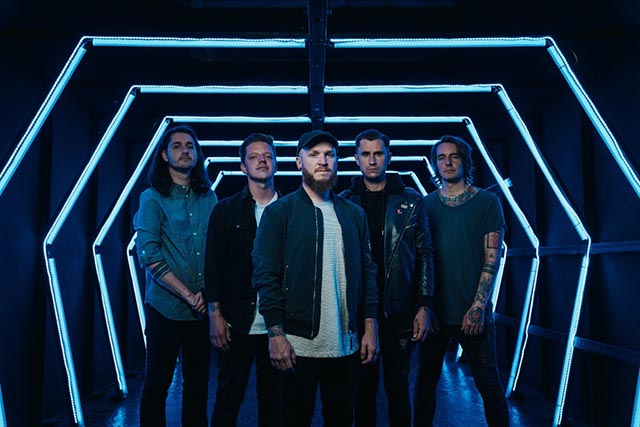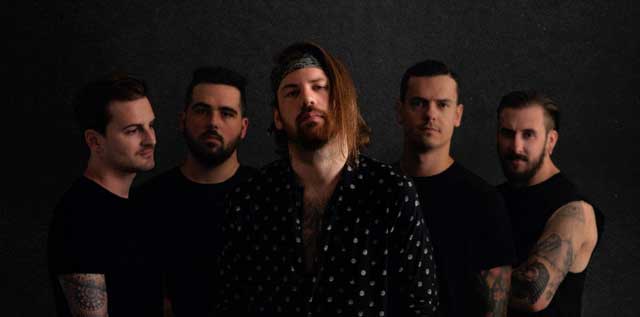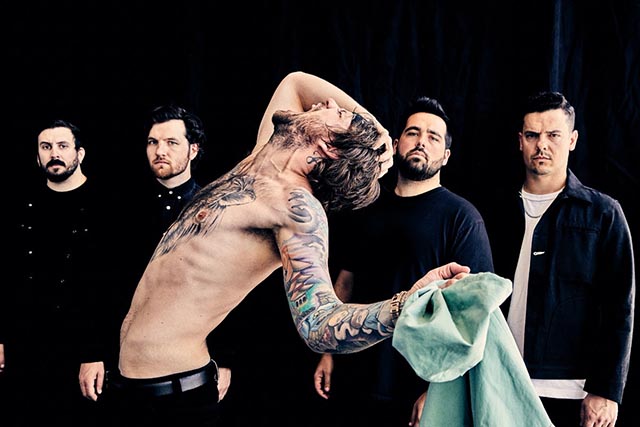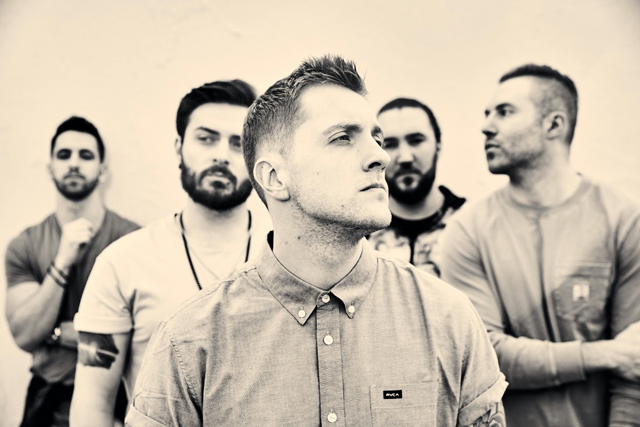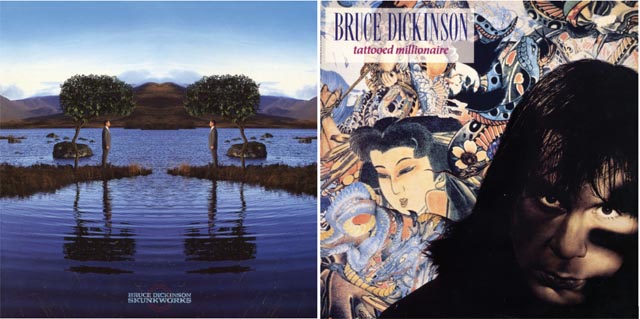
Shomo, center, with Grammy Camp students. Photo courtesy of The Recording Academy®/Wireimage.com, Photo by Cindy Ord © 2016
Despite two albums with Beartooth and a whole other career with Attack Attack! before that, Caleb Shomo is only 23 years old. The combination of his experience and his youth made him perhaps the perfect host for a songwriters workshop at the Grammy Camp for talented high school students. During the session, which was hosted last Thursday (4) at Brooklyn’s Converse Rubber Tracks studio, Shomo participated in a Q&A with the students, then some of them who have collaborated on music performed it for the singer, with him weighing in on the songs.
How did you get involved with Grammy Camp?
We went and met with some recording academy, Grammy people the last time we were in Los Angeles, which was in early June. We hung out with them for a day and learned a whole lot about what goes on in like programs like this. I think this is just such a cool idea for kids to be able to get literally a straight up learning experience, to actually put them in the real world of music. I think there’s a lot of schools and, and not to offend anybody, I think they’re kind of dated and don’t really give you what you really need to get out there in the industry. So we got the offer to do this and we said “why not try and help some people out and at least give what insight I have and be a part of it.”
When you started out in music, you had nothing like this. Do you think the music you created would have changed if you did have a mentoring sort of situation?
For me personally, I think that everything worked out in the way that it needed to work out. Bottom line is, I’m happy with my life as of right now so I wouldn’t really change anything. There’s always mentors around, I think that music kind of works like that for some people. For me, it was my family. Growing up I was always surrounded by music and I just fell in love with it, and through that, actually getting into becoming a songwriter. I had gone to some studios here and there and didn’t really have any idea what was going on, and then just started diving into it on my own, and felt really passionate about it. As I got my foot in the door with learning how to put a song together, that’s when I started working with people like John Feldman. He’s an amazing producer, he’s an amazing songwriter, he works with a bunch of bands and he became kind of a mentor in a way. He’s still a great friend of mine, we still work together. And David Bendeth is another dude who’s incredible. I don’t think I’d be writing the same stuff that I am today had it not been for working with people like that. And the way I work is just being in an environment and soaking it in. So, anytime I get to be around this kind of world, whether it’s songwriting or the more business side of things, I take bits and pieces. But the bottom line, the most important thing is me still feeling individual in my songwriting and I think I just take those little bits of information and try and help push myself and try and find out what I like and write what I think is a better song.
So those two producers are your first mentors, so to speak?
I didn’t work with Bendeth until this last record, it was January of 2016, the first time we really met and hung out. But I started hanging out with John Feldman when I was like 17 or 18. We just got together with some random things and wrote a couple tracks, and it all just kind of took off from there. We became really good friends, wrote like a whole record together at one point, and then from there I started doing Beartooth stuff and he was involved from the get-go. He’s really one of the reasons that I’m even doing this on a big scale at all. He believed in it and he told me I really should go for it, so I did. One of the things Bendeth really helped me with was learning more about the production side and more technical stuff, and we wrote a great song together. I really took a lot about the mentality and what it really takes to get a mix on point and to get your engineering all dialed in. It’s a whole different world, because I’ve been involved in music production and learning how to engineer and do all that since I was 15 years old, and learning how to be in a facility like his and watch him work, I really learned a lot from that.
What are you going to try to impress on these kids today?
I think I’m just going to try and show the realities of what is possible, and the bottom line is you just have to work hard. And, you know, I know so many people that I think could’ve been some of the biggest acts or some of the best people in this music business and they just didn’t really go for it. They kind of waited for it to either fall in their lap or they just let it pass them by and I think it’s really important to take opportunities and push for it. If it’s something you really want, it takes hard work. But also, do what makes you happy. There’s always a few realities, like you have to work hard but if you’re not happy with what you’re doing and you’re just literally killing yourself to make it happen and you’re miserable, then don’t do it. Every day I am so lucky to be able to do what I do and I love every moment of it, and if that wasn’t the case I wouldn’t be doing this. That is also extremely important to know, is that whether it’s writing music or whether it’s producing or engineering or being in the business, whatever it is, you have to find what part of that makes you happy. When I was really young, I wanted to be a session musician where I just went into studios and I’d play guitar, piano. This is when I was like 11, and I still think it would be cool but that’s not really the way my hand was dealt. So, things don’t always work out exactly how you think they are, especially in music. But, it’s all about being happy.
Some of the kids here probably don’t like heavy music. What are you going to say to them that can apply to everyone?
That’s totally cool, man. Even me, I’ve done work in tons of different kinds of music. Metal music is literally just the one that ended up happening. I’ve worked with people making pop music, I’ve done electronic music. I’ve done so many different things, you know, acoustic folk, whatever. But, metal is just… I love it. It’s one of the things I enjoy, but had it been any other kind of music I’m sure I still would’ve been happy. I think moreso than the actual songs, I don’t think my songs necessarily are the important thing here. I think it’s more just trying to show people that if you put the work into what you love to do than it can really pan out, no matter how old you are or how much experience you’ve had. As long as you have the chops and know how to network it can all happen.



